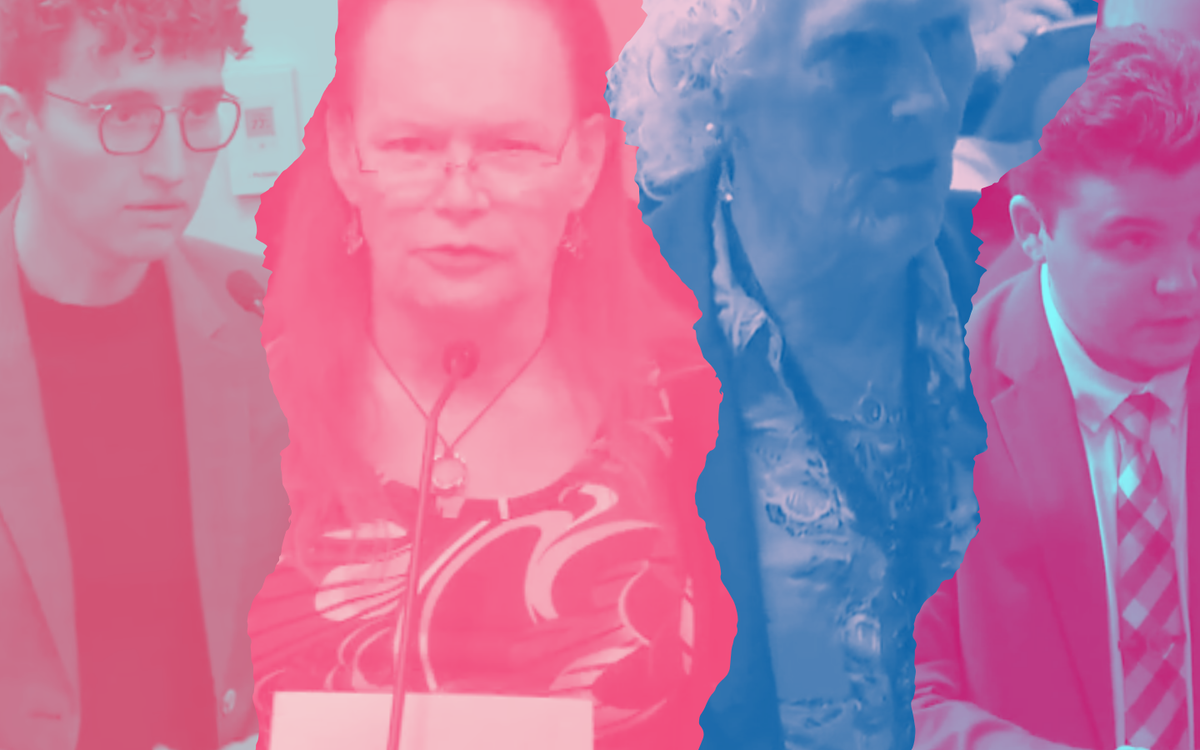No Debate, No Vote, No Explanation: The Tactics Killing LGBTQ+ Rights Bills in Arizona
In Arizona, one person can stop a bill from moving forward in the Legislature, and the public never gets a chance to have their voice heard.
The proposed measure is a way to bypass Governor Katie Hobbs's veto and go straight to voters.

A ballot referral to gut diversity measures in schools and state contracts is one step closer to being on Arizona’s ballot.
The Senate Government Committee on Wednesday advanced along party lines House Speaker Steve Montenegro’s (R-Goodyear) measure that would act as a de-facto ban on any state programs that promote race, gender, or sexuality. The resolution would stop state agencies, including schools, from prioritizing contracts for businesses run by people of color or women, block funding that aims to hire racially diverse staff, and prohibit any funds to programs that discuss gender identity, sexual orientation, and anti-racist material.
Despite Montenegro's measure that seeks to gut civil rights protections and fair hiring practices, he said on Wednesday that his proposal was similar to federal laws that overturned slavery and gave rights to Black people in the U.S.

“This is to help restore color blindness to our institutions and to ensure that the state treats students, employees, job applicants, and small business owners with equality regardless of any race,” he said.
Montenegro positioned the resolution as fighting against discrimination of white people, but civil rights advocates testified that the measure would end up reversing years of equity programs to favor cis-gender white men, and hurting small businesses owned by people of color.
An education policy director from the conservative policy group the Goldwater Institute, which sued Arizona State University last spring over its staff DEI training, was the measure’s lone champion who spoke at the hearing. Multiple opponents of the bill—including people from LGBTQ+ nonprofit One-n-Ten and Reproductive Freedom for All Arizona—showed up to watch.
“HCR 2042 overlooks the complex, intersectional nature of inequality. People experience discrimination in different ways based on multiple factors: race, ethnicity, gender, disability,” said American Civil Liberties Union policy strategist Katelynn Contreras, adding that the resolution wouldn’t address “nuanced ways in which various groups experience barriers to education, employment and simply existing in the world.”
Contreras mentioned a Washington Post-Ipsos poll from the summer that showed a majority of Americans—approximately 60%—supported diversity, equity, and inclusion (DEI) programs.
Jeanne Woodbury, a lobbyist who represented Planned Parenthood Advocates of Arizona, said the bill’s threat to revoke funding for schools that have a gender-diverse curriculum would thwart queer student’s development and lead to unequal treatment.
“A segregated society is one that leads to worse health outcomes,” Woodbury said.

Natashia Townsend, with the Black-led nonprofit Our Voice Our Vote, said the measure will create more disadvantages for small business owners, students, communities of color, women, and LGBTQ+ people.
“For Black, Brown, and Indigenous students, programs like diversity scholarships, fellowships, and recruitment initiatives have provided crucial access to higher education. HCR 2042 could remove these supports” Townsend said. “We should be working to make sure that small businesses, especially those owned by marginalized communities, have access to resources and opportunities for growth.”
Sen. Lauren Kuby (D-Tempe) said the measure “feels like another drive-by legislation,” and expressed “deep concerns about this possible amendment to our constitution” in her explanation of voting against the measure.

In her yes vote for the measure, Sen. Wendy Rogers (R-Flagstaff) said there was a need to “harken back to rewarding merit and embracing competition,” a common argument made by Republicans who see, inaccurately, that diversity practices reward people with fewer qualifications.
Montenegro’s resolution follows an executive order from President Donald Trump’s second day in office that seeks to dismantle civil rights protections in hiring and contracts at the federal level, and is a way for Republicans to circumvent the Governor’s veto. If passed by the Senate, it will be sent to voters on the 2026 ballot.
Montenegro sponsored a similar ballot initiative in 2010 that changed the state constitution to eliminate equal opportunity programs, such as affirmative action, from Arizona's public education, employment, and contracts. That measure was approved by 60% of voters.
At LOOKOUT, we believe in the power of community-supported journalism. You're at the heart of that community, and your support helps us deliver the news and information the LGBTQ+ community needs to thrive.
If you like independent and accountability-driven queer news, then you'll love LOOKOUT's weekly newsletter.
LOOKOUT Publications (EIN: 92-3129757) is a federally recognized nonprofit news outlet.
All mailed inquiries can be sent to 221 E. Indianola Ave, Phoenix, AZ 85012.